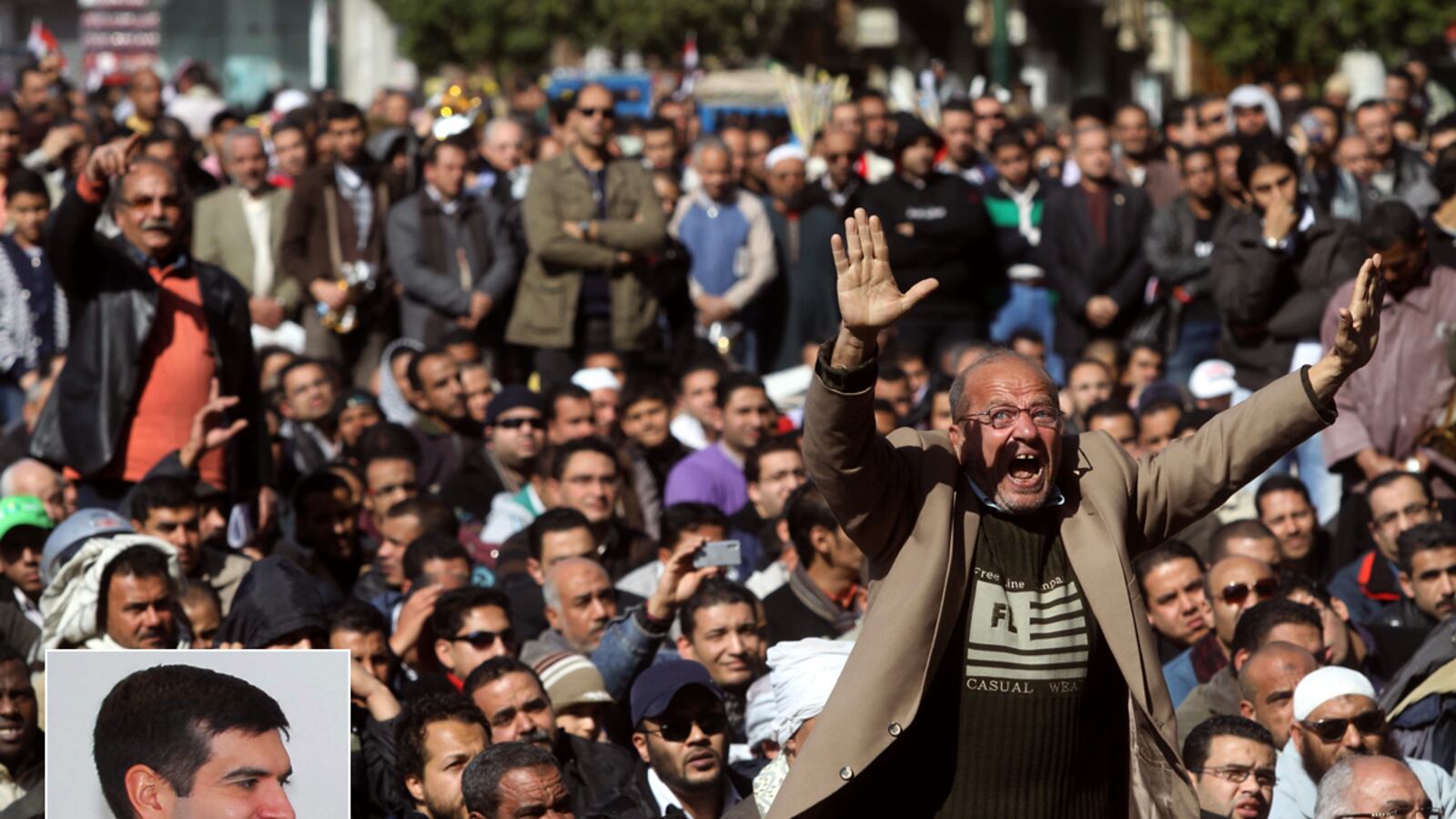Towards the end of last week, I learned a piece of very disturbing news. A good friend and former colleague, Sam LaHood, had been banned from a flight at the Cairo International Airport. I’ve known Sam for a number of years—we first met in Baghdad in 2005, where he worked for the U.S. State Department on the trial of Saddam Hussein—and I’d followed his career as he went on to run the International Republican Institute’s Egypt program. (IRI, for short, is a democracy promotion organization that operates in some 75 countries around the world.) That he would be target for detention, told to leave the airport with his passport taken away, was a shock.
Sam is the most high-profile American caught in a vicious and unjust crackdown against human rights and reformists groups in Cairo—he is the son of a high-ranking member of President Obama’s cabinet, Secretary of Transportation Ray LaHood. Over the past month, Egypt’s transitional military government has launched investigations into some 300 organizations, raiding 17 of them in one day at the end of December. The latest move to prevent Sam and at least six other Americans from leaving the country is proving to be one the most aggressive escalations against American and pro-democracy interests in revolution-era Egypt that we’ve seen so far.
It’s a troubling sign. Just over a year ago Egyptians jubilantly ousted thirty-year dictator Hosni Mubarak. Now, the moving images of Egyptians rising against tyranny in Tahrir Square are in danger of being supplanted by a darker reality: the military’s desperate struggle to hold onto power. As the Council on Foreign Relations analyst Steve Cook put it: “Egyptian armed forces wants to retain its role as the source of legitimacy and authority in Egypt. In a democracy, the people are the source of authority and legitimacy.”

The threat Sam faces is very real. I recently spoke to him by phone, and it’s clear the government is keeping up the pressure on him. "Somebody is recording this phone conversation for sure,” Sam told me from his cell while walking down a street in Cairo. A month earlier, on December 29, he was in office when dozens of men with AK-47s raided it, shutting IRI down. He’d been engaged in a legal battle with the Egyptian government to reopen IRI, he said, when they stopped him at the airport on his way to Doha. "Everybody is scared, for sure. All these groups are nervous,” Sam told me. "They think they’re next.”
There’s also quite a bit at stake: billions of dollars, and perhaps the future of the United States’ relationship with the Middle East. In the aftermath of Mubarak’s fall, America’s decades-long security partnership with the Egyptian military—netting the Egyptians $1.3 billion in 2011—was lauded as a positive and potentially stabilizing alliance that would yield dividends. Instead, the military has led the charge against Western-financed efforts to bolster civil society through free and fair elections and investigate human-rights abuses. “There are clearly forces here that are uncomfortable for this kind of work,” Sam said. “To some degree it’s scapegoating. People are still advocating for changes—people at the forefront of the revolution believe that it’s not over. Mubarak may be gone but not much has changed yet. They are still living under all the same laws and changing that is going to be a long process.”
The military clearly wants to keep it that way. In Sam’s case, he’s subject to trial at the judge’s discretion and charged with running an unregistered NGO and bringing foreign funds into the country illegally—charges punishable, he was told during a three-hour interrogation, with a sentence of six months to five years. And so far, high-level diplomacy has fallen on deaf ears. In December, Secretary of Defense Leon Panetta called in protest of the raids. Assurances were given that IRI and other groups could resume their work, but all operations are halted. President Obama himself called Mohammed Hussein Tantawi, Egypt’s military chief, last week. Sam speaks to his father daily, providing updates on his case. That the Egyptian military is willing to toy with the White House reveals how tense the relationship with Egypt has become. “I think people are hopeful, about the new parliament, new president, the potential for reform,” Sam told me. “You have a lot of people here who are dissatisfied with their lives and dissatisfied with their country.”





